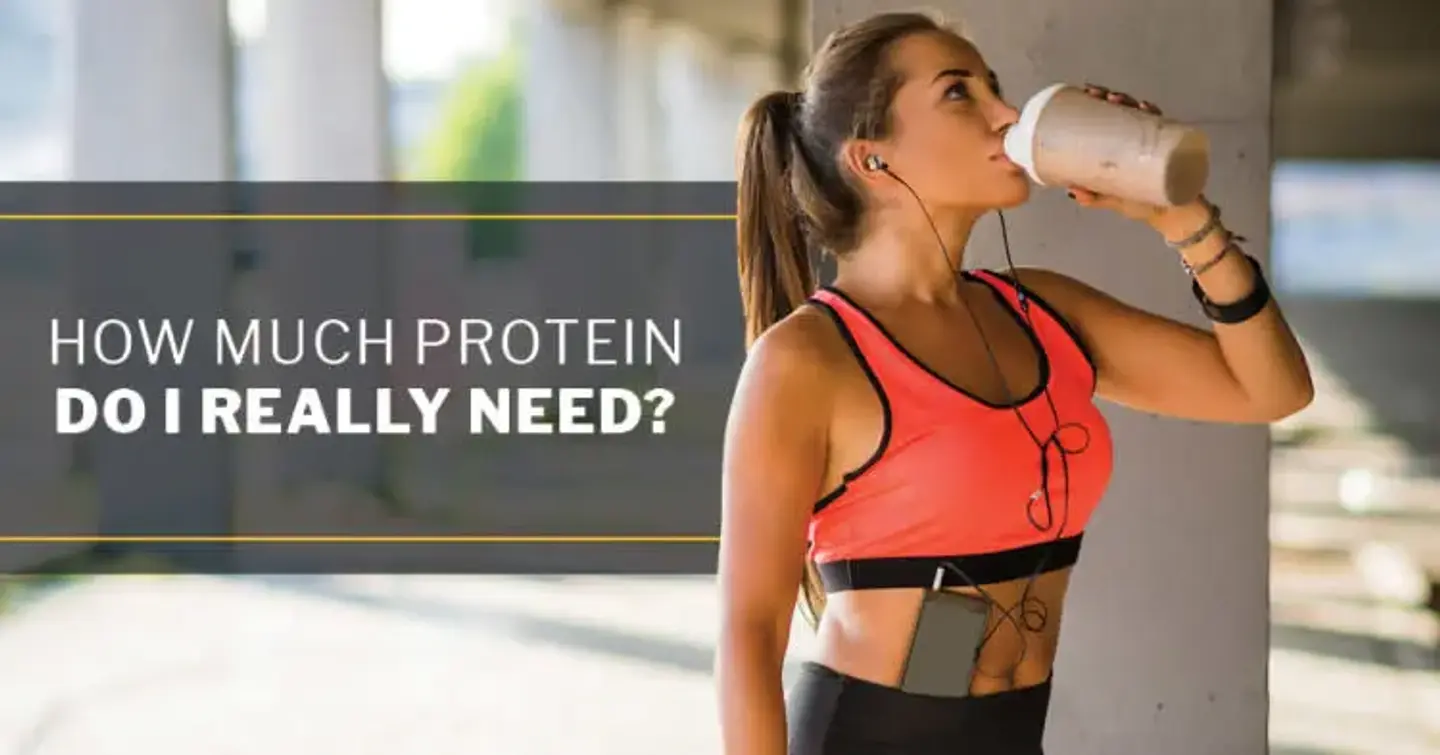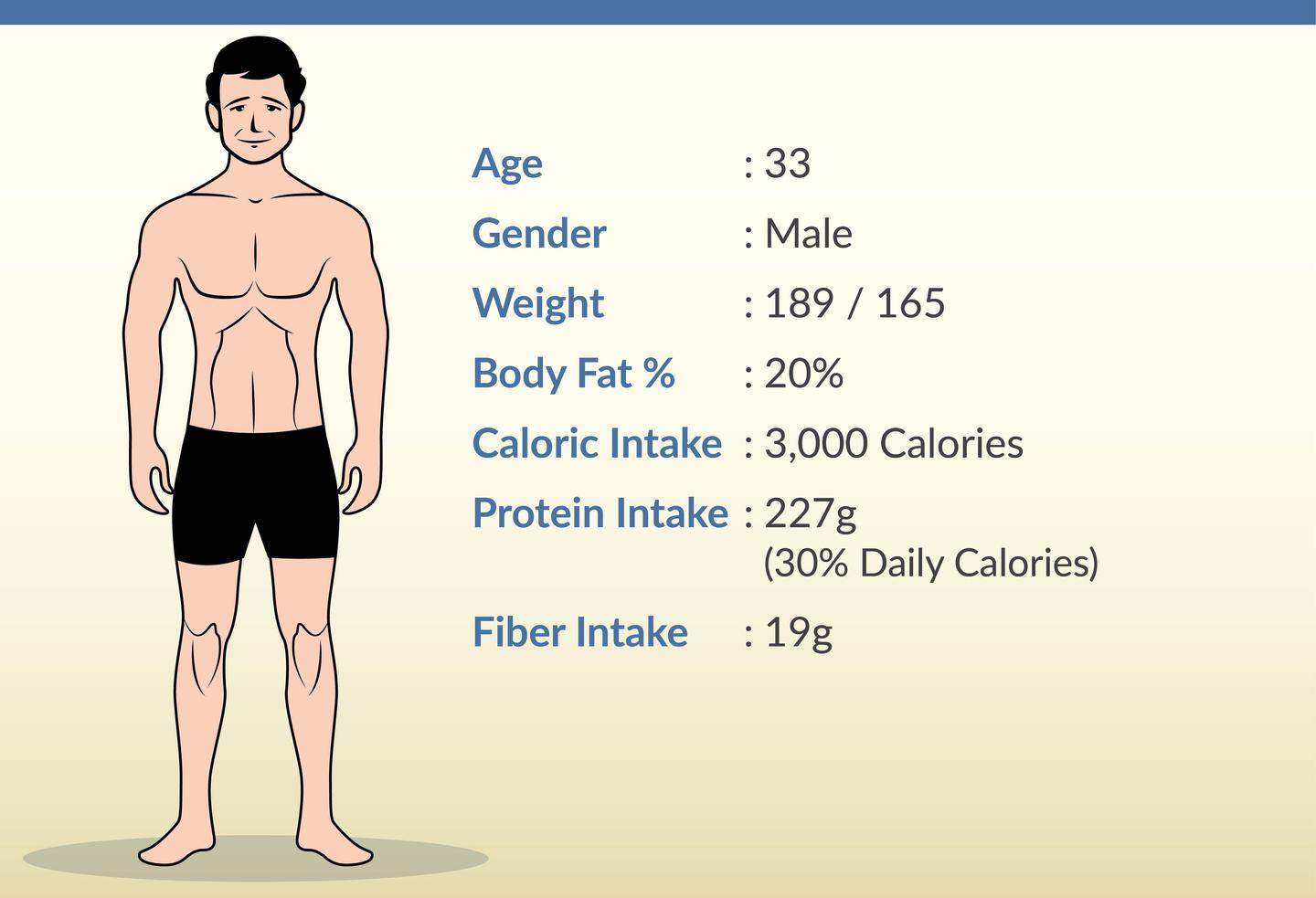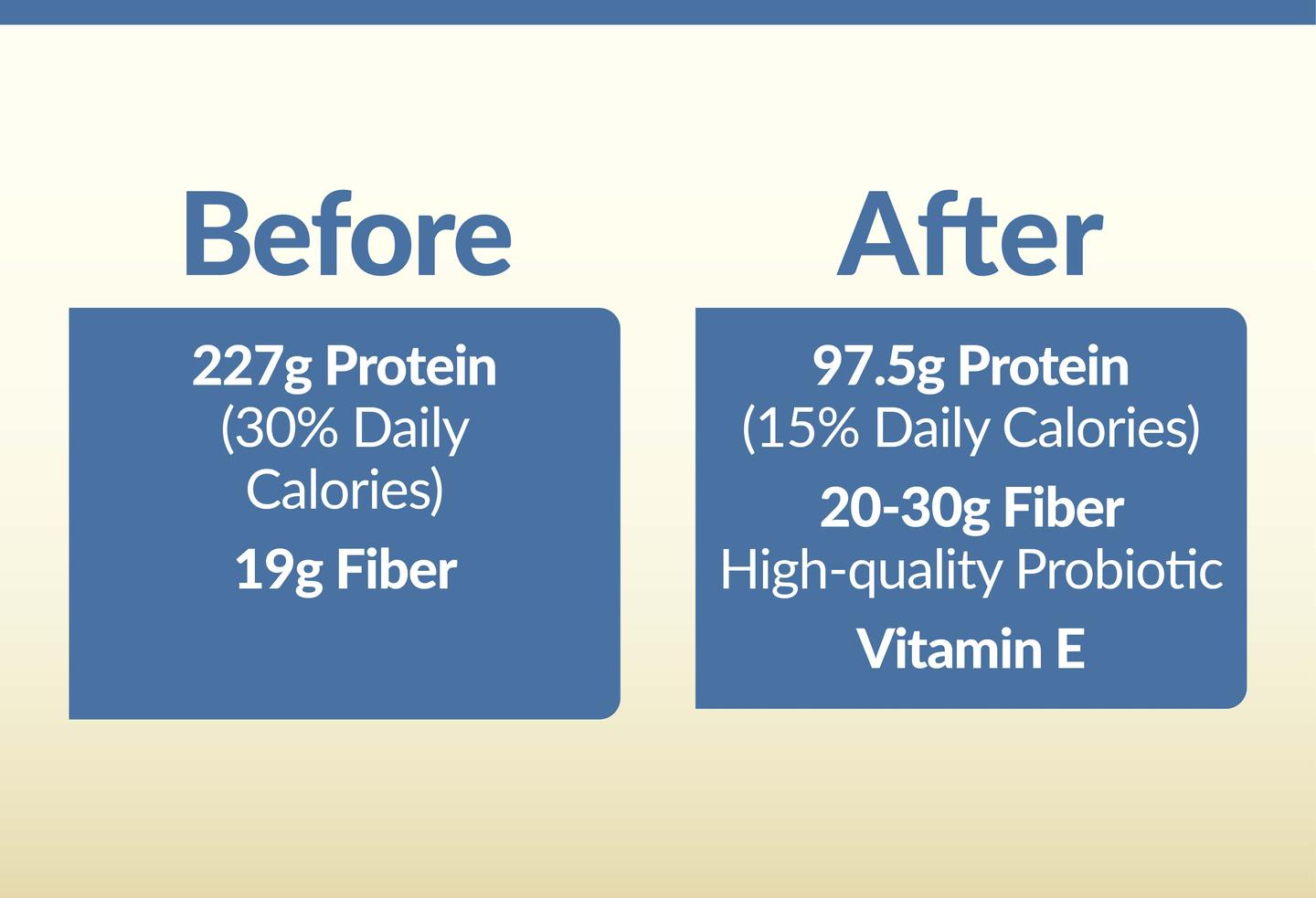
How Much Protein Do I Really Need?
Reading Time: 4 minutes 36 seconds
BY: Christina Klein
DATE: 2022-03-08
As a personal trainer, you already carry a TON of responsibility. You're accountable for safely guiding your clients through their fitness plans. You also provide healthy lifestyle protocols that will help them achieve results. Results that they’re paying you good money for.
But what do you do when, despite your best efforts, clients continue to sabotage their health and performance with an unstable and even dangerous high protein diet? Worse yet, what if they are convinced by marketing hype that the dangerous diet is ideal for them?
The first step is arming yourself with the facts needed to dismantle high protein myths. Then, you can use these facts to get your clients back on track. You do this by educating them about what a path toward greater health and performance actually looks like. So, what are the facts when it comes to high protein?
The Hidden Dangers of Excessive Daily Protein Intake
Left to their own devices, clients will often buy into supplement marketing hype. The siren cry is simply too tempting. Who doesn’t want to double the results in half the time? Especially when it’s as simple as guzzling a few extra protein shakes or swallowing a handful of pills?
On a certain level, you have to respect and even admire your clients’ determination. It shows they have a “whatever it takes” attitude toward achieving their performance goals. And this is the very same motivation that propelled them to take action and hire you as a trainer in the first place.
But if you look at the data, the outcome is bleak when this attitude is applied to protein intake. Why? Taking supplementation into their own hands can keep them from the results they want. In some cases, it might even provide the opposite results. That’s in addition to potentially harming their health.
CASE STUDY: Excessive Protein Intake Puts Amateur Bodybuilder on the Sidelines
One example is a 2015 case study published in the Journal of the International Society of Sports Nutrition. This study proved that excess protein and nutrient supplementation may not be necessary for bodybuilding and athletic gains. It also highlighted how this type of diet can lead to some serious health risks.
This case features a 33-year-old male bodybuilder with a body weight of 189 pounds. His body fat was 20%. After years of intense training and a self-designed supplementation plan, the subject began experiencing severe gastrointestinal side effects. These effects included weakness, fatigue, stomach irritation, and recurrent diarrhea.
Symptoms got so severe that his compromised body actually prevented him from continuing his training program. The result? He lost the muscle gain he’d achieved during the previous six months. How’s that for counterproductive?
The study noted that, during the previous 16 years, the subject’s daily calories hovered around 3,000. His average dietary protein intake was 2.3 grams per kilogram of body weight (g/kg/day). He was also consuming 30 grams of whey protein daily. This was in addition to his macronutrient serving of protein. His fiber intake was capped at around 19 grams per day.
Here’s what all of this looks like:

Notice something off-putting about these numbers? Take a moment to digest it (pun intended).
His protein intake WAS NOT very different from average amateur athletes. It’s not uncommon to see many amateur athletes and bodybuilders consume these amounts. Maybe you as a trainer and athlete have a protein and calorie intake around the same clip.
It’s scary how over-consumption has become so normalized within athletic and bodybuilding cultures. Compare it to the international dietary guidelines, which states that a balanced diet consists of:
A macronutrient ratio breakdown of 55% carbs, 30% fats, and 15% protein
A protein intake of 0.71 to 0.9 g/kg/day for a moderate-level athlete
Increased protein requirements for high-intensity athletes and resistance athletes training three to five days per week—sliding up to 1.2 to 1.7 g/kg/day
Fiber intake between 20 to 30 grams per day to maintain proper gastrointestinal activity
These recommendations highlight just how far off some people are with their protein consumption. What if you or a client’s protein needs are currently being exceeded? Is it too late to undo the damage of a diet that is too high protein? Let’s look at what the study found…
If You’ve Already Started Consuming Too Much Protein
With his gains depleted and gastrointestinal health continuing to suffer, the study subject was put on a strict nutritional protocol. This protocol was designed to reverse the damage of the self-imposed diet. It was carefully constructed to take his resting energy expenditure and level of physical activity into full consideration.
Here’s what his diet looked like:

The subject was advised against any additional protein consumption beyond the new protocol. He was also told to eliminate multivitamin and mineral supplementation for a period of 30 days. There was one exception. He took a high-quality probiotic and vitamin E supplement to help accelerate the recovery of his gastrointestinal system. So, what happened?
The Proof Is in the Supplement-Free Pudding...
Following this strict protocol, the subject’s symptoms quickly subsided. This enabled him to return to his exercise routine. And he did so with a healthier, more efficient, and less-taxed gastrointestinal system.
In full transparency, the researchers concluded that excess protein wasn’t the subject’s only reason for gastrointestinal symptoms. They reported that excess vitamin A, niacin, zinc, and selenium may have played a role as well. What was it about this cocktail that led to such deleterious effects?
It’s suggested that high protein consumption can induce gastrointestinal discomfort. It can also impair water absorption in the intestinal tract. When this is combined with vitamin and mineral overconsumption, the adverse side effects of gastrointestinal discomfort may be amplified. This amplification was apparent in this case study.
5 Ways To Put “Protein Supplementation Awareness” Into Practice for Your Clients
As a trainer, you can help your clients understand the dangers of over-supplementing. This is important not just for protein, but other substances too. Just because something is healthy doesn’t mean that you should get more of it.
Calorie intake is a prime example. Bodies rely on calories to support basic bodily functions. You need to eat to survive. Yet, a calorie surplus can harm your health. As your body weight increases, so does your risk of disease. It’s the same with protein and other healthful nutrients. You want to consume the amount your body needs, but no more.
Here are five ways to help lead your clients to a more balanced diet:
#1. Any nutrition advice you provide should be specific to that client.
It should take into consideration their body composition (body weight, body fat percentage, lean body mass, etc.). It should also be specific to their daily activity level.
This includes the appropriate caloric ratio for protein, carbohydrates, and fat.
Remember: Resistance athletes require no more than 1.2 to 1.7 g of protein per kg of bodyweight for muscle repair. This is along with 8 to 10 kg/day of carbs.
#2. Stress that your clients should seek proper advice from a nutritionist or physician before creating their own diets.
This professional can help determine their individual needs. They can also provide recommendations based on the client’s goals. A weight loss diet looks different than a diet geared toward increasing muscle mass.
Working with a nutritionist also helps the client choose the best protein sources for their diet. Some clients follow a plant-based diet, for instance. Plant based protein doesn’t provide all the essential amino acids. Therefore, it is considered an incomplete protein. (Conversely, animal protein is a complete protein.) Eating a variety of protein rich food is important for adequate essential amino acid intake. Add the incomplete proteins together and the client meets their needs.
#3. Warn clients of the risks of over-supplementation.
Educate them that, in the medium to long-term, they actually sabotage their health and performance with this approach.
This one may require a bit of empathy, especially if they’ve bought into marketing hype. You might be bursting their bubble a bit. Telling them that they can’t achieve weight loss or lean mass as quickly as they were promised can be a let-down. Explaining why can help them better recognize these outrageous claims in the future.
#4. Stress the importance of whole foods.
Encourage clients to receive their vitamin and mineral intake from whole foods instead of supplements. Supplements are designed to fill the gap in diets, not to be the primary source of nutrients. If they follow a balanced diet, they may not need a supplement at all. That’s something a nutritionist can help decide.
#5. Suggest that the client keep a daily food journal.
This can help to discover and track their eating habits in relation to their goals. It can also make it easier to identify any potential issues.
Maybe they’re struggling with weight loss, for instance. They don’t understand why because they’re staying within the appropriate calorie range. A quick look at their journal might reveal that they’re not consuming the right ratio of fats, carbs, and protein. Or they’re eating three protein bars a day versus choosing a more natural protein source to meet their needs.
Answering the Question: How Much Protein Do I Really Need?
When clients ask this question, the answer is likely: probably not as much as you think.
More is not always better. And those who pursue self-made diets should never overestimate the role of macronutrient intake while underestimating the potential side effects of micronutrient over-supplementation.
Learn how to create individualized diet plans for your clients with ISSA’s Nutritionist certification. This helps ensure that they get the daily protein and other nutrients they need, and no more.
Featured Course
ISSA | Nutritionist
By becoming an ISSA Nutritionist, you'll learn the foundations of how food fuels the body, plus step by step methods for implementing a healthy eating plan into clients' lifestyles.
References:
Guardia, Lucio Della. Cavallaro, Mauricio. Cena, Hellas. “The risks of self-made diets: the case of an amateur bodybuilder.” Journal of the International Society of Sports Nutrition (2015) 12:16. Web. 01 April. 2015.